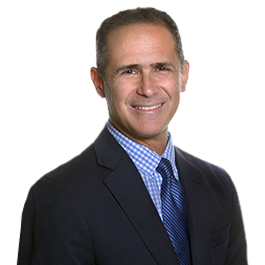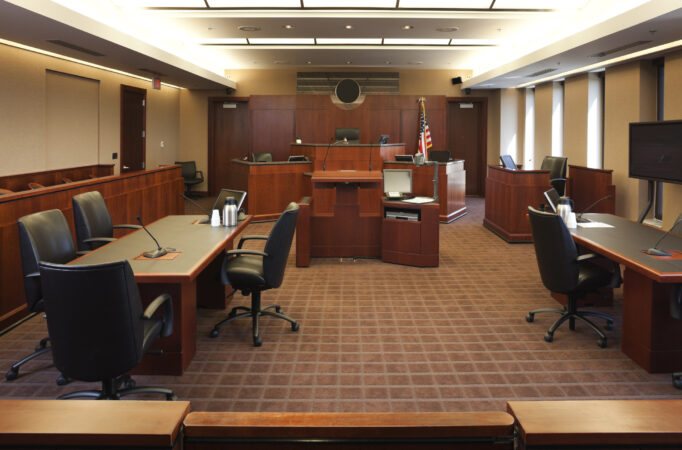Litigation: Latest Legal Blogs and News
U.S. District Court for Eastern District of Pennsylvania Allows Class Action Securities Fraud Suit to Proceed against Pharmaceutical Manufacturer
In re ViroPharma Inc. Sec. Litig., No. 12-2714, 2014 U.S. Dist. LEXIS 67414 (E.D. Pa. May 15, 2014), the U.S. District Court for the Eastern District of Pennsylvania denied a motion to dismiss securities fraud claims brought under Sections 10(b) and 20(a) of the Securities Exchange Act of 1934 against a pharmaceutical manufacturer by a class of purchasers. The purchasers alleged that the manufacturer made misleading statements and omitted material information with respect to its pending drug petition, which, if denied, would result in the manufacturer losing exclusive market share for a drug that comprised a substantial portion of its revenues. The FDA eventually denied the petition, resulting in a 21% decline in the shares of the manufacturer’s stock. Under these alleged facts, the court concluded that the class had made out a prima facie case of securities fraud under Sections 10(b) and 20(a).
In so concluding, the court found that the plaintiffs had satisfied the heightened pleading standard under Rule 9(b) and the PSLRA by specifically identifying the misleading statements and omissions, explaining why those statements and omissions were false or misleading, and stating when and by whom those statements and omissions were made. Although the defendants sought to invoke the PSLRA’s safe-harbor provision for forward-looking statements, the court rejected the provision’s application to the alleged misrepresentations and omissions. Specifically, the court concluded that the alleged misrepresentations and omissions could not be characterized as “forward looking” since the defendants allegedly were aware of the undisclosed information at the time when the omissions were made.
With respect to the materiality of the allegedly misrepresented and omitted information, the court found that the information that was the subject of the misrepresentations and omissions was material because it bore directly on the likelihood of the manufacturer having an exclusive market share for the drug. According to the court, the manufacturer was under no obligation to disclose all communications that it had with the FDA, but information bearing on exclusivity could not be misrepresented or omitted by the manufacturer since it would have been significant to investors.
The final issue addressed by the court was scienter, which the court also found to be pleaded adequately. In determining that the plaintiffs had adequately pleaded scienter, the court relied in part upon the “core business” doctrine-i.e., because sale of the drug comprised a substantial portion of the company’s revenues, the company should have been aware of the issues affecting exclusivity. Additionally, the court relied upon irregular insider trading activity and the detailed statements of confidential witnesses to conclude that the plaintiffs had carried their burden of proving under Tellabs, Inc. v. Makor Issues & Rights, Ltd., 551 U.S. 308 (2007), that the inference of scienter was “at least as likely as any plausible opposing inference.”
Because the court declined to dismiss the securities fraud claim under Section 10(b), it also declined to dismiss the derivative, “control person” claims under Section 20(a).
As a brief comment, the court did not consider loss causation as part of its decision. The court did note in passing, however, that “[t]he FDA’s denial of a Citizen’s Petition will invariably affect a stock price in a negative way, regardless of whether a company sees it coming or not.” Nonetheless, the court determined that the plaintiffs had pleaded sufficient allegations so as to be permitted to conduct discovery on their theory of fraud against the manufacturer.
About Us
The litigation attorneys at Houston Harbaugh, P.C., are accomplished business trial lawyers, providing comprehensive support in litigation across a broad spectrum of matters throughout Pennsylvania, West Virginia, Ohio and other jurisdictions upon a special admission basis. Our clients are regional and national small, medium and large companies and individuals who seek well planned and aggressive, but cost effective litigation. We counsel, we budget, we have a deep bench, we act quickly when needed and we have experienced trial lawyers who know the courts and bench. We serve regularly as local counsel for some of the largest law firms in the country when they have matters in this region.

Henry M. Sneath - Practice Chair
Co-Chair of Houston Harbaugh’s Litigation Practice, and Chair of its Intellectual Property Practice, Henry Sneath is a trial attorney, mediator, arbitrator and Federal Court Approved Mediation Neutral and Special Master with 98 trial verdicts and extensive federal and state court trial experience in cases involving commercial disputes, breach of contract litigation, Artificial Intelligence (AI), intellectual property matters, patent, trademark and copyright infringement, trade secret misappropriation, DTSA claims, cyber security and data breach prevention, mitigation and litigation, employment and restrictive covenant litigation, probate trusts and estates litigation, construction claims, eminent domain, professional negligence lawsuits, pharmaceutical, products liability and catastrophic injury litigation, insurance coverage, and insurance bad faith claims. DTSALaw® Business Litigation. Pittsburgh Strong.®

Samuel H. Simon - Practice Chair
As co-chair of Houston Harbaugh’s Litigation Group, Sam focuses his practice on commercial/business litigation. Sam regularly represents clients in the construction, manufacturing, oil and gas, and wholesale/retail/ distribution industries, as well as individuals in matters such as:
- Construction litigation
- Environmental litigation
- Breach of contract disputes
- Oil and gas litigation
- Negligence
- Restrictive covenants (non-compete agreements)
- Civil rights
- Collections/creditors’ rights
- Lease disputes

